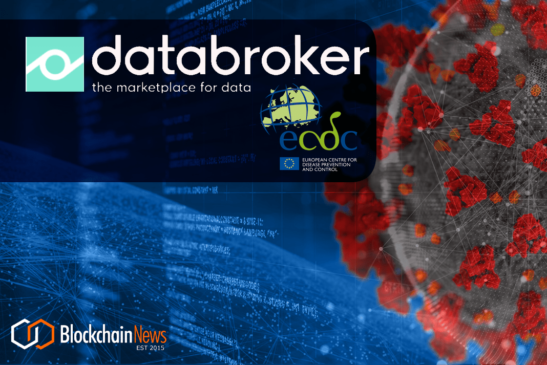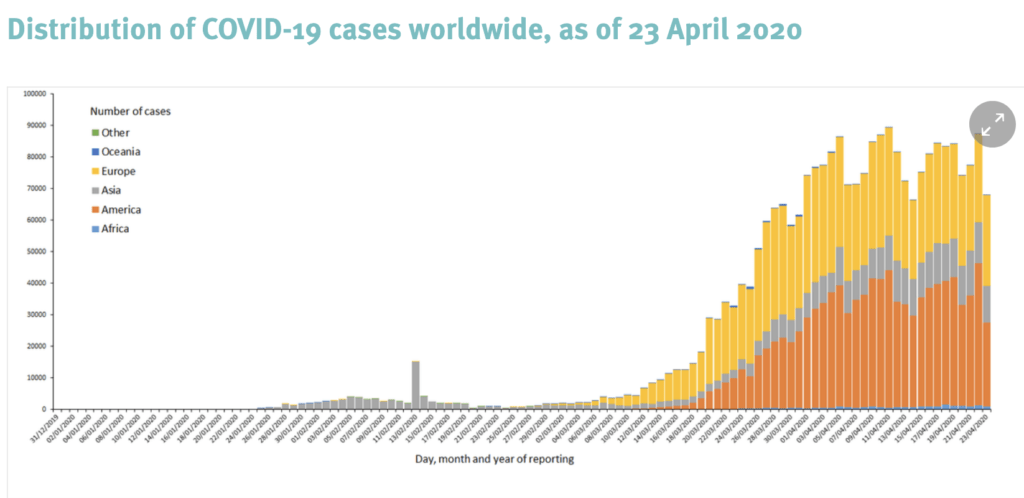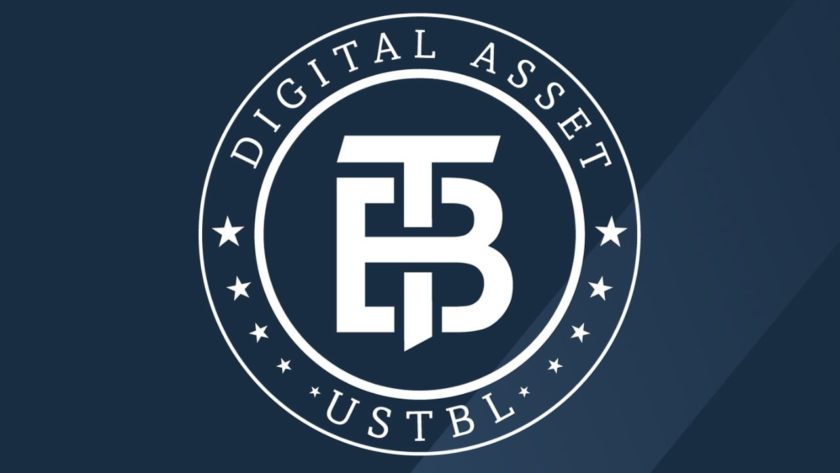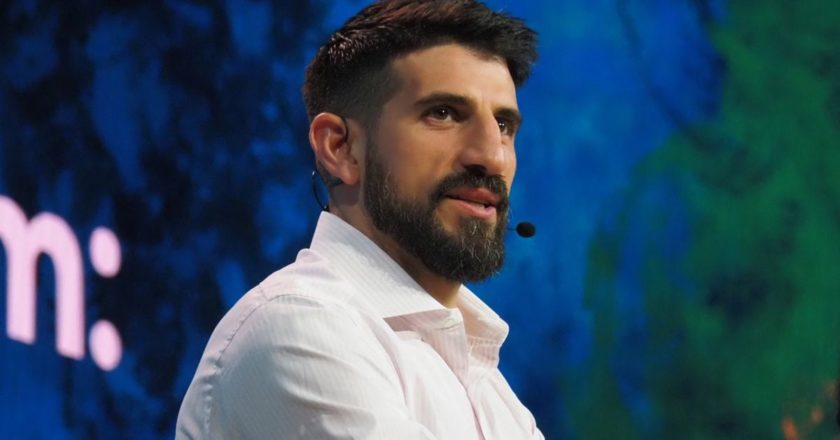The COVID-19 crisis has shown even a greater need for reliable and open data that is verified by the blockchain and smart contracts and Belgium’s Blockchain Project Databroker has stepped and announced they are collaborating with the European Centre for Disease Prevention and Control (ECDC) to bring extensive data on the geographic distribution of COVID-19 cases worldwide to their Databroker marketplace.
The extensive, verified data allows for deeper assessment and analysis of emerging threats to human health from COVID-19 and includes supportive suggestions and material for building up new intelligence methods or improving already existing capacities.
It is open for public access and offers a free trial for a month.
“It’s big progress we’ve made in a relatively short period of time – delivering the peer-to-peer platform we need to allow data sharing and data monetization,” stated Matthew van Niekerk, Databroker’s CEO.
Since the beginning of the global pandemic, ECDC’s Epidemic Intelligence team has been collecting the number of COVID-19 cases and deaths, based on reports from health authorities worldwide. This comprehensive and systematic process is carried out on a daily basis by a team of epidemiologists who screen up to 500 relevant sources to collect the latest figures and then further interpret the dynamics of the COVID-19 pandemic not only in the European Union (EU), the European Economic Area (EEA), but also worldwide.
The data screening is followed by ECDC’s standard epidemic intelligence process for which every single data entry is validated and documented in an ECDC database. An extract of this database, complete with up-to-date figures and data visualisations, is then shared on the ECDC website, ensuring a maximum level of transparency.
ECDC’s main role as an agency of the European Union is to strengthen Europe’s defences against communicable diseases and is the key player in pooling knowledge, exchanging information and best practices among experts in Europe.
“As for the actions underway, we keep our focus on perfecting the platform, making it intuitive to use. Also, we aim at finalizing the integration with the Data eXchange Controller (The DXC software, installed on the data provider’s system that allows data to be safely and securely transferred from the seller to the buyer) and blockchain smart contracts,” added van Niekerk.
Databroker’s core strategy is to help accelerate the path to effective adoption of the data economy by focussing on the bringing together of both bring data buyers and data sellers to ensure easier, faster and safer access to reliable and actionable data.
“It’s a platform that brings business value and does work for businesses across different industries, universities and government institutions,” added van Niekerk.
Van Niekerk and his team unveiled the Databroker marketplace in March 2020 and started with a bang – onboarding the National Geographic Institute, Robustel, Computd, Phoenix Contact and Ice Gateway on the seller side and expecting they will see more traction as data (verified, privacy, immutable etc.) takes centre stage on multiple levels due to the coronavirus pandemic.
The impact of COVID-19 and its impact on both data and privacy are expected to have a positive effect and Big Data but even without the pandemic, the numbers are startling. Databroker is well-positioned for growth.
The global IoT market size is expected to be worth some $949.42 Billion By 2025 with a CAGR of 29.4 per cent and trend of processing the contextually rich and real-time data streams generated by IoT networks and sensors using machine learning and artificial intelligence is expected to drive growth.
The data market is expected to flourish over the next decade.
- Companies Will Invest Up to $1.1 Trillion in IoT by 2023
- There Will be 41 Billion IoT Devices by 2027
- For context, one million seconds is roughly equal to 11.5 days. One billion seconds is roughly equal to 31.75 years.
- Every Second, Another 127 Devices Are Connected to The Internet
- There Will Be 1.9 Billion 5G Cellular Subscriptions by 2024
If the vast amount of investment and the total number of connected devices doesn’t rattle you, imagining the astronomical amounts of data all these devices and sensors are expected to generate?
The growth in connected IoT devices is expected to generate 79.4 zettabytes of data in 2025, according to a 2019 IDC forecast.
This is rather a large amount, considering one zettabyte is equal to a trillion gigabytes or 1,000,000,000,000,000,000,000 bytes.
That’s a lot of zeros.
Also published on Medium.





